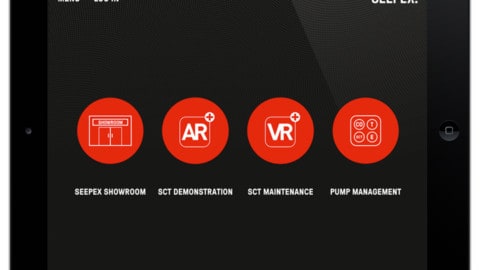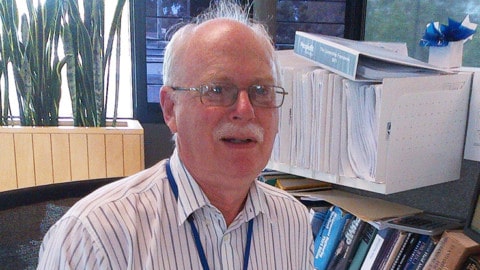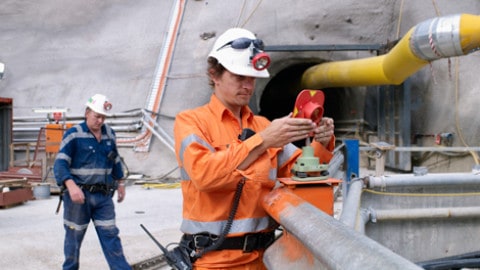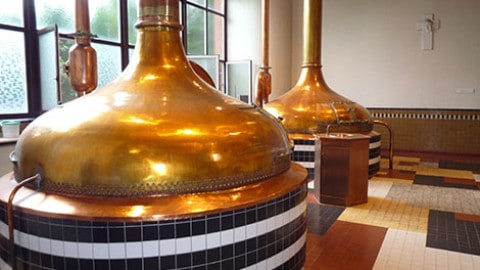Tony Sgro has had a long and varied career in the Australian pump industry, although he has remained loyal to two great pump companies – Ingersoll Rand and Kelair – throughout his career. To mark his retirement just last month, we caught up with Tony to reflect on his years as a pioneer of the Australian pump industry.

Tony in Jakarta in 1978.
When did you first get into the pump industry?
My first job was as an Internal Sales Engineer at the Ingersoll Rand (I-R), Sydney office starting on 6 January 1971. This job provided me with my first involvement with pumps and it was primarily with centrifugal pumps.
By training, I am a Chemical Engineer. During two stints of vacation training in my university years, it became clear to me that I was going to make a poor engineer. I started looking for jobs in the Sales and Marketing area and this ended with Bruce Ellis offering me the job at I-R. I-R’s product spread was very broad and I was trained and worked in pumps, stationary air compressors, air tools and gas compressors. I began specialisation in pumps in 1977 when I moved to the Pump Division in I-R’s Melbourne Head Office.
What do you like about the pump industry?
Pumps have been my primary involvement and I know pumps better than anything else. I especially enjoy the sales environment however my involvement with pumps has also allowed me utilise some of my engineering training. Any journey of 44 years would be meaningless if it were not for the people encountered along the way. I have made friends through my involvement with pumps and I am very good friends with people I met on my first visit to Ingersoll Rand Melbourne in January 1971. This is what I have liked most about my involvement with pumps.
What other companies have you worked for during your time in pumps?
I worked with Ingersoll Rand for nearly nine years beginning as an applications engineer. I progressed to a couple of different external sales roles then moved to Head Office with a regional responsibility and my final year was working with Ingersoll Rand International located in Jakarta in 1978. My father’s passing in 1978 forced an early return to Sydney and after a couple of months I joined Kelair starting on 1 February 1979. I have worked only for I-R and Kelair.
How has the industry changed during your time in it?
Changes such as the demise of our processing industries and of pump manufacturing in Australia have been mentioned by previous interviewees.
The changes that I find difficult are of a more general nature rather than specifically pump industry related. The increase in sometimes draconian Terms and Conditions are now commonplace in business. These T&Cs are too often used as a tool for both imposing unfair directives and for boosting profits. It has made business sometimes confrontational and unpleasant. The final result is poorer for all concerned.
The level of pump knowledge in our client base is not what it used to be. In the 1970s, some clients had pump knowledge far greater than the pump company representatives. Selling value was understood and more readily accepted. This lack of knowledge leads to decisions often based on price rather than technical aspects. This also leads to a poorer result for all concerned.
I regret the diminishing of loyalty. By loyalty, I mean loyalty between employer and employee and also between customer and supplier. Whilst relationships in business are still and always will be important, they are more difficult to establish on a long term basis because people no longer remain in jobs for long periods of time.
Did you have a mentor at any time in the industry?
Both in my personal and professional life, I have learned from many people with whom I have crossed paths. I am sure there are lessons that I should have heeded and did not.
Yet, there are two people who have had a significant influence in my life in pumps. Peter Snow who I worked with in my early years at I-R taught me most of what I know about centrifugal pump theory. I was a bit of a knowledge sponge and Peter was prepared to spend the time with a young, green engineer.
Bill Smith, the founder of Kelair, was a major influence in my education in sales and business. This started at I-R when Bill was my boss for a couple of years and progressed through the 25 years we had together at Kelair. They were both great teachers and I am indebted to them both.
- Left to right: Tony at work in 2000; Tony with friend and mentor Bill Smith in 1995; Tony in his office at Kelair just before his retirement.
- Visiting a pump on site in the 1990s.
Tell me about some of the other personalities in the industry that you have worked with?
Bruce Ellis, who moved on to be Managing Director of Mono Australia, gave me my first job. In my early years, I most likely gave Bruce many reasons to regret that decision but I do thank him for checking me out with the receptionist at I-R. Bruce was not aware I had already charmed the lady. Bill Smith started in the pump game in either 1963 or 1964. That is over 50 years ago and I worked with Bill for over 33 years. Bill was both a dynamic and enigmatic personality. I also worked with another fiery Scotsman, Alan Rowan, in 1977 at I-R. His volcanic temper eruptions, usually followed by flying 5kg pump manuals, were legendary. However a short five minute walk would calm him down and he would return as if nothing had happened. I was fortunate to start work in the early 1970s when companies were hiring young people. Two good guys who started in pumps at about the same time as me and are still in the business with the Brown Brothers/Kelair group are Mal Eyre and Warren Smith. Quite a number who have worked at Kelair over the years are still in the pump game. These are people like Bob Exon who runs KSB in New Zealand, John Wilkins at ITT Blakers and Chris Wansbury at Brown Brothers, along with many others.
What are the most significant developments you have witnessed in the industry?
The major change is the almost total disappearance of Australian pump manufacture and the associated rise in overseas suppliers. This has developed over the last 40 years or so. Companies such as Grundfos and KSB were represented by local companies prior to establishing their own presence in Australia. Pump start-up companies generally representing overseas suppliers began to proliferate in the 1970s. This has led to a fragmented pump supply industry in Australia with just about every manufacturer of pumps in the world represented in some way in this country. This is how Kelair started.
A further development is that some companies now source products from all around the world. We see this particularly with EPC companies. Other EPC companies issue enquiries from overseas offices. We have also seen an increase in ‘global contracts’ and ‘preferred supplier agreements’ established between major manufacturers and customers. This presents problems in selling for smaller companies like Kelair.
Although not limited to pumps, another development is buyouts and mergers of companies. You may wake up one morning and have a different master than the day before. This is particularly significant to companies who represent overseas manufacturers as it could very well mean a loss of a major distributorship.
- Tony at work in 2000.
- Tony in his office at Kelair just before his retirement.
- Tony with friend and mentor Bill Smith in 1995.
Are you still involved in the industry today?
I retired from Kelair and the pump game in July 2015.
What advice would you give young people in the pump industry?
Grasp those with knowledge and soak out as much of it from them as you can by being inquisitive. Do not expect that knowledge will be handed to you on a plate. Ensure you allocate time during your day to teach yourself. If you do not have knowledge, you are likely to be superficial in what you talk about.
I like reading quotations and one that sticks with me is: ‘Don’t look back; you are not going that way’.
What are the greatest challenges facing the pump industry? What does the future hold for pumps?
I believe the industry’s greatest challenge is attracting, training and retaining people. Engineering sales is not a ‘trendy’ vocation and our industry is not known for being the best paying in the world. Many accept a job in the pump industry as a stepping stone to a future position elsewhere. Today’s employee has grown up in an environment where changing jobs to get ahead is seen as not only acceptable but even as a necessity. They are very mobile in their professional lives. Attaining an acceptable level of pump knowledge takes many years and requires both application and a desire to learn on the part of the employee. I believe that for this reason, pump companies no longer train and leave it to others hoping to pick up trained staff later in life.
My hope is that future is good for the pump industry. The pump industry will not disappear. The need for pumps will still exist. The one thing we can be sure of is that change will happen; yet I have no idea how change will impact on our industry.
What do you like to do in your spare time?
Kelair has been my hobby for 36 years and I have not given much time to anything else. My long suffering wife, Denise, and my daughters Gemma and Lauren would attest to that. I am an avid if poor golfer and have involved myself extensively on the Board of my golf club over the last ten or so years. I have been fortunate in having the opportunity to do a lot of business travelling during my time at Kelair. I have also travelled with the family on a number of occasions and I enjoy this very much. I hope my golf handicap improves and the opportunity to travel increases now that I am retired. I have always wanted to learn to play a musical instrument and I intend to take up the guitar in my retirement as well.



















